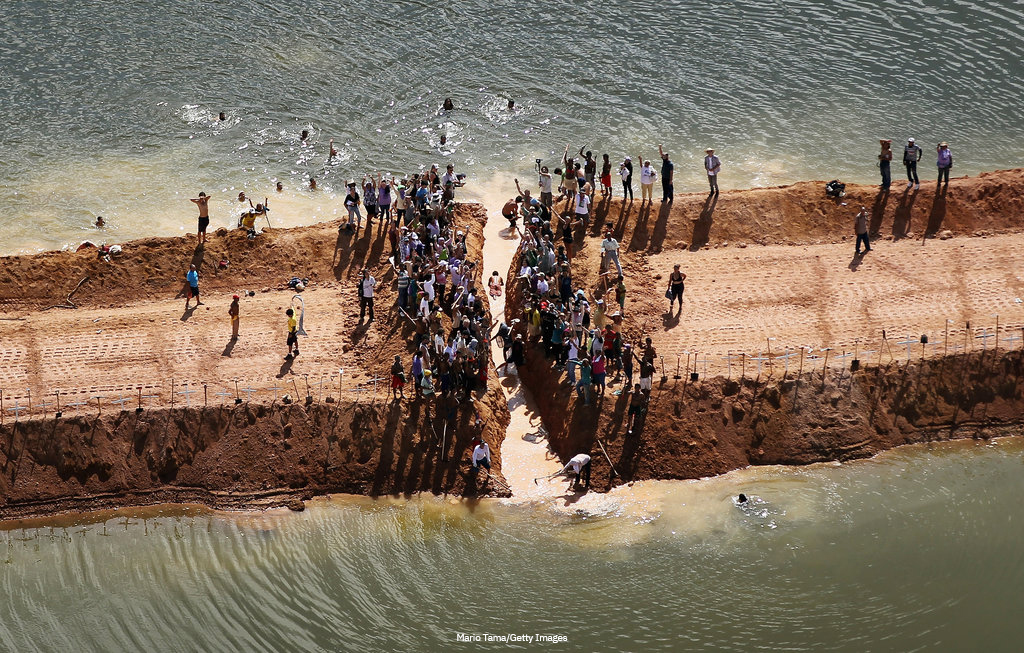Population growth and increasing economic development have led to a new era of hydroelectric complexes constructions in developing countries, often firing up enduring controversies. Amongst the most controversial dam projects, the Belo Monte dam complex in Brazil has flared up local and international opposition since its inception in the mid Seventies, and still remains highly contested after almost fourty years. Facing resistance from a wide variety of people - from local Amazonian tribes and traditional people to environmentalists and global celebrities - Belo Monte is at the centre of a ferocious political, economical, environmental and human rights debate. Deeply involved in corruption scandals embracing Brazilian politics and private corporations, the dam has been inaugurated in 2016 and is currently missing only the last of the three federal licenses needed in order to start operating, with still ongoing court battles.
Belo Monte has already changed forever the city of Altamira, which has become the municipality with the highest number of crimes in the nation, is threatening the Amazonian riverine ecosystem and is deemed to emit an alarming quantity of greenhouse gases. When operative, the dam will completely displace 20,000 people. Yet, the Brazilian Government has deemed more than once the complex necessary for the country’s economical and social growth. Is a country’s prosperity worth the environmental toll caused by the impacts of mega-dams?
Introduced by a general exploration on dams, the research starts from nowadays. With freshly President-elect Jaìr Bolsonaro’s controversial environmental agenda and local tribes still on the warpath, the analysis covers the most recent years of the online debate, with a final focus on 2014-2018, to map the complex network of relationships and interests between the actors and how the topics involved are being narrated by different websites, both Brazilian and international.
